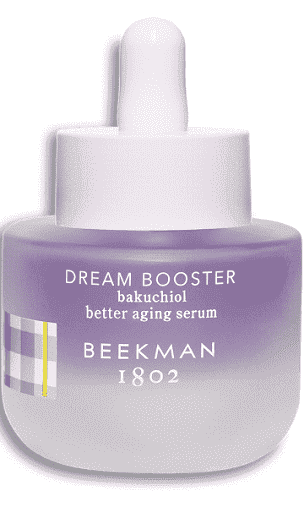 |
| Photo: Adweek |
Tula focuses on a gut-to-skin connection by putting prebiotics and probiotics in its skincare. While this may seem like shrewd marketing, there is real science behind it. We have billions of bacteria living on our skin, as well as, in our gut. {A lurking microbiome of living microorganisms ... you are never truly alone!😱😂} Without a doubt, preprobiotics, probiotics, and postbiotics are essential for overall good health, creating a good microbiome and resulting in skin balance, not to mention, glowing skin. There's plenty yet to be learned, but the company's approach of putting biotics into its skincare works to balance the skin microbiome -- this is backed by science, as it helps fight inflammation (a cause of aging), treats wounds, and strengthens immunity.
Tula is formulated by Dr. Roshini Raj, its founder, a practicing gastroenterologist who is at the forefront of the gut-to-skin microbiome connection. Dr. Raj developed an innovative way to put probiotic extracts called S6Pro Complex into skin elixirs to effectively balance your skin microbiome with the results of strengthening, hydrating, and healing the skin. She has 20 years of experience, including research with successful clinical trials and product testing, behind her.
Next, I'll list Tula's probiotic complex products in the order I'd splurge on them ... still only after waiting for a good sale to roll around:
1) Retinol Alternative Serum - To ease wrinkles with 3 botanical retinol alternatives of bakuchiol, alfalfa sprouts, and stevia with squalane.
2) Pro-Ferm Overnight Complex - To recharge and replenish the eyes - It contains bakuchiol (a gentle retinol alternative), s6Pro complex (as do all Tula's products), peptides, chamomile, squalene, and shea butter. As it happens, I don't use a separate eye cream, but if retinol is too harsh, this should provide the same benefits.
3) Overnight Repair Treatment - A high-potency face cream to treat wrinkles using alpha hydroxy acids and vitamin C.
Watch for more beauty brands to offer biotics-based skincare -- it's coming and will ultimately bring prices down.
 When splurging on skincare I tend to buy only one item, not everything all at once. The serum is the most-worth-the-splurge item for me (as it treats both under the eyes and face). With a 2nd splurge, I might try something I don't already have (anti-aging eye cream). Finally (later on) I might complete the set with the night cream. If I ever see Tula at T.J. Maxx, I'll be sure to snatch it up for less! It's why putting the name on your radar is a smart move.
When splurging on skincare I tend to buy only one item, not everything all at once. The serum is the most-worth-the-splurge item for me (as it treats both under the eyes and face). With a 2nd splurge, I might try something I don't already have (anti-aging eye cream). Finally (later on) I might complete the set with the night cream. If I ever see Tula at T.J. Maxx, I'll be sure to snatch it up for less! It's why putting the name on your radar is a smart move.
















